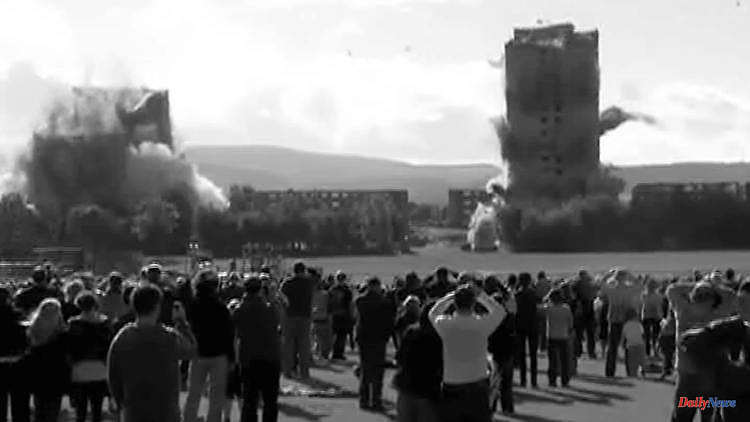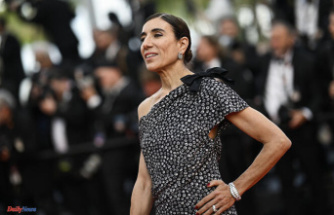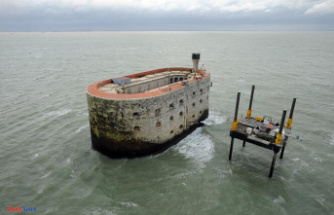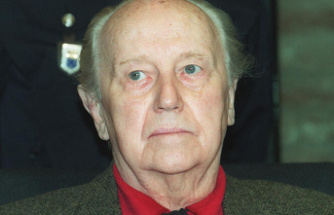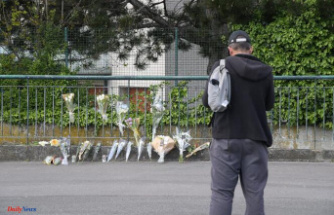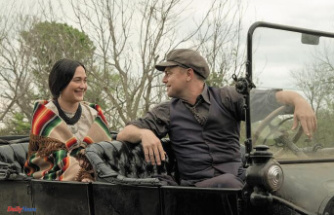Collectors acting as a collective are a rarity. The Art'Us Collectors' Collective shares its artworks with a wide audience while staying in the background itself. During Berlin Art Week there is an exhibition in the cold store that will leave no one indifferent. A conversation about visions and emotions.
Art that is not seen, stored in archives, is forgotten. Art wants and needs to be shown. Only when the work is seen can it be discussed. Then it makes people euphoric. This is the opinion of the "Art'Us Collectors' Collective". Four collectors from Berlin, Düsseldorf, Munich and Stuttgart have joined forces and now have a database of over 1000 works. First and foremost, they want to convey art, to share the works of art they have collected with many people. What is exciting is that they collect in different areas - photography, painting, conceptual art. On the occasion of the exhibition "As if everything were forever. Of processes and non-belongings" in the Berlin cold store, Gudrun Ruetz in Stuttgart and Florian Peters-Messer in Viersen spoke to ntv.de via zoom. It's about anonymity, collective thoughts, controversial issues, enthusiasm and emotions.
ntv.de: Your collective consists of four collectors - there will be no photos of you as a person. So am I talking to some kind of phantom?
Gudrun Ruetz: No, of course we are flesh and blood people. We don't want to hide either, but the focus of our collective is on art. Anyone who visits our website will see that we display works of art there that personalize us.
Florian Peters-Messer: Our intention is to step back for art, anonymity is of great benefit there. It's about the content of our collected artists.
Why and when did you start Art'Us Collectors' Collective?
Gudrun Ruetz: We've been active for five years, that's when we had our first exhibition project. For us, collective means first and foremost that we are synonymous. Everyone speaks with the same voice, everyone is equal in their personality, but also in the art they collect. We are concerned with communicating art by sharing our collections, as we are doing now in Berlin. However, we also support other exhibition projects or catalogs financially and promote young artists.
The critics say that collective responsibility can be better pushed away...
Florian Peters-Messer: Our decision-making process is collectivistic. The four of us sit down, talk, think about whether we want to do this or that project or not. Then we pull together and nothing is hidden. We hire experts for the creative process of implementing a project, such as the exhibition in the cold store.
Where are the points of contention?
Gudrun Ruetz: Art has something to do with emotion, nobody collects art because it's a factual issue. Art is always the emotion that grabs you, touches you and inspires you. Otherwise we wouldn't buy them. If, on the other hand, an exhibition project is being considered, then it is an internal discourse that we conduct. Of course, he also gets emotional at times because it's an affair of the heart.
Florian Peters-Messer: I would put it very bluntly, there are no real points of contention. We have a similar professional background, namely a business or legal background. We are able to look at a topic objectively and goal-oriented. I'm a bit emotional sometimes though. From time to time there are imbalances in the distribution of work. But that balances out again in the next project. What is being discussed intensively is the allocation of funds. However, these are goal-oriented discussions. If you define a dispute as something that definitely has an emotional quality, then it doesn't happen. Of emotional quality is more that we like each other very much and sometimes drink a glass of wine together.
What connects you beyond art apart from a glass of wine and this emotionality?
Gudrun Ruetz: We all have a 5 before our age, we are open and spontaneous. None of us are one of those selfish people who want to play first fiddle. That's why the collective works. Basically, we found out surprisingly that we found friends in completely different cities, at our age. We are not the buddies who did high school together or go on vacation together. We have different characters, but we got to know each other through art and it connects us.
What is the advantage for you as a collector to work in a collective?
Florian Peters-Messer: There are two things that are inherent in all of us: the combination of means and our art. By adding funds, you can simply move more.
Gudrun Ruetz: But I have to intervene right away. I don't want to be the dry business economist who collects the money. Actually, you are always the emotional one. Collecting is a passion and passion that is very important to all of us. And we want to give something back to art, to the artists. We would like to pass on the examination of the art that inspires us in everyday life. In addition, it is interesting to have stronger leverage together with financial resources.
Florian Peters-Messer: This order is correct. Glad you interrupted me. And the third point is that we inspire each other and get to know new artistic positions.
Has the collective changed your view of art?
Florian Peters Messer: Yes. I'm heavily involved with conceptual art and developed a sharpening view over many decades. If I am now confronted with works that work on a different level and I have to deal with them, then it tears down a concrete wall.
Do you also exchange art with each other or is it just about conveying art and sharing it with as many people as possible?
Gudrun Ruetz: (laughs) We haven't got that far yet. Whereby desires sometimes arise along the lines of: "Oh, I could hang that up myself."
Why is sharing and thus showing art so essential for you?
Florian Peters-Messer: That is an essential point that connects the four of us. We have so much art at home and in storage. We are all aware that art can only unfold its effectiveness if it is discussed with its viewers. Art is not a decoration for private people, it is essentially an artistic expression. The audience can open up new perspectives. We are inspired to go into communication, to bring artistic positions into the discourse, to the outside, and to give something back.
What does art do to you personally?
Gudrun Ruetz: Art feels different every day. Even work that you have had for a long time speaks to you individually every day. Art not only shimmers in different lights like painting, it also makes different sides of us ring out. It allows us to take a step back and see the artist's view of social issues.
Florian Peters-Messer: For me, that's the most important thing: recognizing that there are ways to look at issues differently. And one more thing: I have no children. Art enables me to look into the way of thinking of other generations, such as digitization or dealing with sexuality. I'm 58, someone who is 27 or 37 sees the world differently. It broadens my view of the world and increases my understanding of what's happening out there.
What can the audience expect in the Berlin cold store?
Florian Peters-Messer: We are showing a lot of sculptural and installation works. So it will be a very sensory experience, an exhibition that is different and thought-provoking.
Gudrun Ruetz: In addition to sensuality, fragility is also in the foreground. We are currently experiencing this in ourselves that we are thinking about how this crisis will continue. This fragility of processes, learned security that disappears, is a core idea of the exhibition.
Curator Harald F. Theiss developed the concept. He had access to our virtual Schaulager, the shared database. Incidentally, his curatorial concept was already created during the lockdown phases. He combined fragile social developments with art.
Juliane Rohr spoke to Gudrun Ruetz and Florian Peters-Messer
The exhibition "As if everything were forever. Of processes and non-belongings" runs from September 15th to October 1st in the Kühlhaus, Luckenwalder Straße 3, 10963 Berlin. More about Art'Us Collectors' Collective here

